In The Flight of the Intellectuals, Paul Berman argues that it is not violent Islamists who pose the greatest danger to liberal societies in the West but rather their so-called moderate cousins, such as Tariq Ramadan. Such a reading of contemporary Islamism, however, misses the many nuances of the movement and the real battles between reformers and Salafists.
MARC LYNCH is Associate Professor of Political Science and International Affairs and Director of the Institute for Middle East Studies at George Washington University.The Rise of Political Islam in the west
This spring, Tariq Ramadan arrived in the United States nearly six years after being denied a visa by the Bush administration. The U.S. government had previously refused Ramadan entry on the grounds that he had donated to a French charity with ties to Hamas. Then, last January, Secretary of State Hillary Clinton announced that Ramadan was welcome. His appearance in the United States seemed to manifest the White House’s changing rhetoric about the Muslim world. In June 2009, President Barack Obama spoke in Cairo of reaching out to Muslims with "mutual interest and mutual respect." Figures such as Ramadan — symbols of a nonviolent Islamism long shunned as enablers of extremism — may now represent a bridge across previously intractable divides.
Paul Berman will have none of this. His book The Flight of the Intellectuals, based on a 28,000-word essay published three years ago in The New Republic, mounts a furious counterattack from the bygone days of the Bush administration. Too many in the United States and Europe, Berman argues, are confronting the wrong enemy. Violent Islamists do not pose the greatest danger; instead, it is their so-called moderate cousins, who are able to draw well-meaning liberals into a poisonous embrace. Their rejection of violence is both partial — not extending to Israel or to U.S. troops in Iraq — and misleading. In Berman’s telling, the Islamist project of societal transformation from below does profound violence to the individual Muslims who are forced to live in an increasingly constricted milieu. The only defensible response is to repel the stealth Islamism of putative moderates with a morally pure vision of liberalism.
But such a polemic, in fact, poorly serves those concerned about the rise of political Islam in the West. Berman does flag important debates about Islam’s impact on Europe and the world, but he is an exceedingly poor guide to navigating them. His reading of Islamism, based on a narrow selection of sources read in translation and only a sliver of the vast scholarship on the subject, fails to grasp its political and intellectual context. He is blind to the dramatic variation and competition across and within groups — above all, to the fierce war between the Salafi purists who call for a literalistic Islam insulated from modernity and the modernizing pragmatists who seek to adapt Islam to the modern world. This blindness feeds the worst instincts of those hard-liners who are fomenting an avoidable clash between Islam and the West. His obsession with Nazism is distracting, and his dissection of Ramadan approaches the pathological. His caustic rhetoric toward writers such as Ian Buruma and Timothy Garton Ash does not suggest the liberal or tolerant ethos to which he claims allegiance.
This is a pity, for Berman does raise several powerful and troubling questions. Islamists, even nonviolent ones, do often challenge Western liberals by advocating social norms and political agendas that run against the historical tenets of liberalism. What accommodations can be made for religious conviction without betraying core Enlightenment principles? What to make of the popularity and electoral prowess of Islamist movements across the Muslim world? It is impossible to support democracy without being prepared to defend the rights of Islamist movements to participate in and win elections. Yet the religious and cultural agendas of many of these groups should trouble Western liberals, even if these movements support the peaceful democratic aspirations of Muslims across the world. If a culture war against Islam is not the answer, then how should Western liberals respond to genuinely popular and nonviolent Islamist movements that are committed to working within democratic institutions but that promote values at odds with progressive standards of freedom, equality, and tolerance?
FATHERS AND SONS
Berman’s lodestar for addressing these questions is Ramadan, a Muslim public intellectual born in Switzerland in 1962. Ramadan descends from vaunted Islamic stock: his maternal grandfather was Hasan al-Banna, who founded the Muslim Brotherhood in Egypt in 1928, and his father was Said Ramadan, a high-profile figure in the Muslim Brotherhood who fled repression in Egypt. Berman searches for the true Ramadan in his biography (researching Banna and Said Ramadan), in his intellectual influences (looking into the Doha-based Islamist Yusuf al-Qaradawi), in his (unpublished) dissertation, in his books, in his public exchanges, and in the growing library of critical books about him — but not, apparently, by speaking to him directly. Nonetheless, after years of effort and a couple hundred pages of inspection, Berman finds Ramadan to be an elusive figure. Berman is sure that Ramadan is hiding his true agenda, although he can never quite produce a smoking gun. He allows that Ramadan is not "engaged in some kind of elaborate conspiracy or . . . acting on a secret plan" and that his ambition, "so far as [he] can judge, is what he says it is." But it is precisely that ambition — the nonviolent project of Islamic revival in Europe — which troubles Berman.
Berman’s unease lies in the very different notions found in the democratic societies of the West and the often authoritarian systems of Muslim-majority countries of how Muslims should understand their identities, practice their faith, and engage in politics. Ramadan is a pragmatist, seeking a way for European Muslims to be both fully European and fully Muslim. His 2003 book, Western Muslims and the Future of Islam, which Berman reads as concealing the truth beneath "a veil of euphemism," in fact lays out a sophisticated argument for how Muslims can be full citizens of their countries while retaining their religious identity. In What I Believe, Ramadan is even more clear: "I state firmly that we have multiple, moving identities and that there is no reason — religious, legal, or cultural — a woman or a man cannot be both American or European and Muslim." This is a positive obligation, he argues: "It is up to Muslim individuals to be and become committed citizens, aware of their responsibilities and rights."
But this is an option from which Berman recoils. He prefers Muslims to be secular and does not want to see the kind of bridge Ramadan is constructing. His truncated understanding of the diversity of Islamic politics causes him to miss the significance of Ramadan’s exhortations to European Muslims to participate in politics as full, engaged, and equal citizens. Berman similarly underplays Ramadan’s doctrinal rejection not only of terrorism but also of narrow, Salafi jurisprudence. Ramadan has little use for the puritanical versions of Islam that have taken root in many Muslim communities and crowded out other forms of piousness — a process that Khaled Abou El Fadl, a professor of Islamic law at UCLA, has called "the great theft."
Berman gets Ramadan’s struggle backward. Ramadan’s primary adversaries are not liberals in the West but rather literalistic Salafists whose ideas are ascendant in Muslim communities from Egypt and the Persian Gulf to western Europe. For Salafists, a movement such as the Muslim Brotherhood is too political, too accepting of civil institutions, and insufficiently attentive to the formalistic and public rituals of Islam. They urge Muslims to separate from Western societies in favor of their own allegedly pure Islamic enclaves. The Muslim Brotherhood has encouraged women to wear the veil, but only so that they can demonstrate virtue while in universities and the workplace. The Salafists, meanwhile, want women at home and strictly segregated from men. True liberals should prefer Ramadan because he offers a model for Muslims of integration as full citizens at a time when powerful forces are instead pushing for isolation and literalism.
Ramadan has not couched his challenge to the Salafists in abstract language or kept it from public view. For example, when Salafi opponents have confronted him with Koranic verses dictating that women receive only half the inheritance of men, Ramadan has argued that these passages should be reinterpreted given the modern changes in family structure and the fact that many women today raise children alone. Therefore, Ramadan argues, Muslims should "try to keep the justice instead of literally implementing verses, pretending faithfulness to the Koran but in fact creating injustices on the ground." This is a sharp challenge to the Salafists, the significance of which Berman does not recognize. Similarly, Ramadan’s call in 2005 for a moratorium on the implementation of hudud penalties — including the stoning of adulterers — is mocked relentlessly by Berman as too little, but in fact it posed an intensely controversial challenge to the heart of Salafi political agendas and jurisprudence.
Ultimately, Ramadan disappoints his liberal interlocutors because they are not his most important point of reference. He has made a strategic calculation that embracing the political passions of the Muslim mainstream is the only way for his reformist agenda to gain any sort of credibility or traction with the Muslim audiences that really matter. And although his vision may not be a classically liberal one, it is a fully legitimate guide for how Muslims — or any persons of faith — can participate in a liberal and democratic system. As Andrew March, a political theorist and professor at Yale University, has argued, the cultures of political liberalism in the West should be able to accommodate peaceful, law-abiding citizens who are motivated by explicit religious faith. The United States, which boasts its own powerful religious communities and fundamentalist political forces, should of all places be able to understand how this works.
This does not mean that liberals should not have misgivings about Ramadan’s project. He defines sharia — the system of Muslim jurisprudence — not as the law of the land but as a personal moral code, sustained by the faith of the believer. Why should such a belief be alarming? After all, this is how many people of faith have reconciled themselves to civic states. But in practice, this evangelical project of societal transformation through personal transformation — changing the world "one soul at a time" — is more deeply radical than what violent extremists envision. Anyone can seize state power through violence and then impose his will by force. True power lies in the ability to mobilize consent so that people willingly embrace ideas without coercion — so that they want what you want, not simply do what you want. Nonviolent Islamists excel at this level of soft power and, in doing so, have succeeded in transforming public culture across the Muslim world. Walking the streets of Cairo today, for example, it is hard to believe that only a couple decades ago, few women covered their hair.
LUMPERS AND SPLITTERS
In trying to understand Islamism, two approaches are possible. The first sees Islamism as essentially a single project with multiple variants, in which the similarities are more important than the differences. In this view, the Muslim Brotherhood and al Qaeda represent two points on a common spectrum, divided by tactics rather than by goals. Such an understanding makes it possible — if not unavoidable — to see Osama bin Laden lurking in the figure of Ramadan.
The second approach sees consequential distinctions in the ideology and behavior of various Islamist strands. In the years since 9/11, the United States has moved from the former camp to the latter. The United States’ experience of cooperating with nationalist Iraqi insurgents against al Qaeda in Iraq has led many U.S. policymakers to favor a strategy that identifies differences among Islamists and uses them to accelerate al Qaeda’s marginalization. Many observers in the United States and elsewhere adopted a similar tack after watching the Muslim Brotherhood contest elections and defend democracy in countries such as Egypt, even as the Brotherhood opposed U.S. foreign policy objectives.
Berman proudly takes the first approach, of lumping Islamist groups together. For him, the faces of Islamism range from the wild-eyed assassin of the Dutch filmmaker Theo van Gogh to the anonymous bearded radicals who terrorize their communities, and from the "monstrous" Qaradawi to the smooth Ramadan. Yes, Ramadan has criticized bin Laden and condemned terrorism — but Berman is unmoved, since he sees violence only as a manifestation of the deeper intellectual problem of the Islamist project. Liberals, Berman argues, should not be fooled by the mild rhetoric or democratic inclinations of nonviolent Islamists or think that engaging with them does Muslims any favors. "Muslim liberals take umbrage . . . at well-meaning observers from outside the world of Islam who, in a misplaced effort to sympathize with the oppressed and stigmatized Muslims, agree to regard the heritage of Hassan al-Banna as the authentic and respectable voice of Islam," he writes. He is right about the suspicion of Islamists among many Muslim liberals and secularists. But these groups — however much Berman and I both might wish otherwise — represent only a small slice of Muslim societies. By focusing on them, Berman disregards the more important battles that occupy the Muslim mainstream.
The evolution of these struggles can be seen in the experience of Qaradawi, who plays a decisive role in Berman’s book. Ramadan’s "reverence" for Qaradawi, a preacher and television host linked to the Muslim Brotherhood, serves as Berman’s coup de grâce. Qaradawi has achieved infamy for his fatwas in support of Palestinian attacks against Israeli civilians. If Ramadan reveres such a "monstrous" figure — and does not understand him to be monstrous — then surely Ramadan’s worldview must be fundamentally flawed. But Berman renders Qaradawi so crudely that few Muslims would recognize him in the caricature.
In fact, Qaradawi is a pivotal figure who straddles the divides within today’s Islamist world. He is a fierce advocate of democratic participation and a critic of al Qaeda, which makes him an icon to mainstream nonviolent Islamists and an object of outrage among Salafi jihadists. He is best known for his doctrine of wasatiyya, or "centrism," which lays out a middle ground between secularism and fundamentalism. He rejects the doctrinal extremism of the Salafists and the violent extremism of al Qaeda — in a recent book, he dismissed al Qaeda’s efforts as a "mad declaration of war upon the world." At the same time, he often takes issue with U.S. foreign policy and is certainly hostile toward Israel, not to mention being a highly successful proselytizer of the Islamist worldview. This potent mixture may be troubling, but it largely defines the mainstream Muslim position. Indeed, one of the keys to Qaradawi’s popularity is his ability to anticipate Arab and Muslim views; like Ramadan, Qaradawi is a barometer of Muslim opinion as much as a cause of it.
Berman argues that Ramadan’s respect for Qaradawi prevents him from making the breaks with Islamist orthodoxy necessary to becoming a truly reformist figure. But Berman fails to notice that Ramadan has already made such breaks, at some personal cost to himself. Ramadan and Qaradawi have clashed several times in recent years. Ramadan has rejected Qaradawi’s suggestion that Muslims in Europe should relocate to Muslim-majority lands; he has also criticized Qaradawi’s defense of Palestinian violence against Israel, insisting that Palestinian opposition should take the form of nonviolent civil disobedience.
These arguments demonstrate not only that Ramadan is flexible but also how Qaradawi has changed. Over the last few years, his rulings have become more conservative, literalistic, and orthodox. Arguably, this is because the winds of Islamism have been changing. Salafists are gaining in influence everywhere, driven largely by the failure of the Muslim Brotherhood’s model of political participation and the continued flow of Gulf oil money to literalistic institutions and individuals. The purity of Salafism offers simple answers to Muslims in Europe, many of whom are facing profound crises of identity and alienation. Qaradawi senses these changes but has struggled to adapt. This spring, he lost control over his own creation, the popular Islamist Web site Islam Online, when Salafists took over editorial control and forced out a number of staff members sympathetic to the Muslim Brotherhood. When Qaradawi tried to intervene, he was dismissed from the editorial leadership by the site’s owners in Qatar — a startling fall for one of the pillars of Islamist activism over the last three decades.
Those, such as Berman, who see Islamism as flat and uniform claim that Islamists of all varieties — despite differences over the use of violence or the value of democratic participation — ultimately share a commitment to achieving an Islamic state. But this is misleading. There is a vast and important gap between the Salafi vision of enforced social uniformity and the moderate Islamist vision of a democratic state, with civil institutions and the rule of law, populated by devout Muslims. The gap is so great as to render meaningless the notion that all Islamists share a common strategic objective. Ramadan stands on the correct side of this gap, and by extension, he stands on the right side of the most important battle within Islamism today: he is a defender of pragmatism and flexibility, of participation in society, and of Muslims’ becoming full citizens within liberal societies.
Ramadan’s defense of participation places him opposite the literalists and radicals with whom Berman attempts to link him. The hard core of the Salafi jihadists view all existing Muslim societies as fundamentally, hopelessly corrupt — part of a jahiliyya, which means "age of ignorance," from which true Muslims must retreat and isolate themselves. Ramadan, by contrast, calls for change from within. Groups such as the Muslim Brotherhood offer clinics, charities, schools, and other services, while pursuing the dawa, or "spiritual outreach." Their approach would be familiar to anyone who has engaged with American evangelicals — the polite conversation, the pamphlets and other literature, the self-presentation as honest and incorruptible. There is an obvious difference between a woman who is forced to wear a veil for fear of acid being thrown in her face and one who does so to show respect for God. But there are other forms of coercion — peer pressure, societal norms, and economic need — that can be difficult to detect from the outside. These are topics for serious study.
But Berman does not even try. He sees only a radical mob of fanatics, not individuals who find meaning in their lives given particular contexts and specific challenges. As Berman sees it, blank-faced cyphers impose a grim conformity on passive communities that are unable to resist (presumably because their will has been weakened by an Ian Buruma essay). It does not occur to him that Islamism might offer meaning to those who are confined to gloomy urban ghettos or that Islamist groups might be the only ones working on the ground to improve certain people’s lives. For many Muslims around the world, Islamism may offer a better life in the here and now — and not just in the hereafter — than do many of the alternatives.
This point should not be misunderstood. Although the Muslim Brotherhood is clearly distinct from al Qaeda, it is not the uniformly "moderate" organization that its supporters often say it is. The organization’s character and goals often vary from community to community, and its rhetoric sometimes betrays a number of worrisome "gray zones," in the words of a 2006 study by the Carnegie Endowment for International Peace. Its members generally avoid making clear statements on contentious issues, such as the place of non-Muslims in the Islamic state, the toleration of secular Muslims, or where the authority to interpret Islamic law should reside. And the Muslim Brotherhood’s rejection of violence at home does not extend to areas where Muslims live under occupation, such as the Palestinian territories or Iraq. Such positions may not please many Americans, but they do — like it or not — represent the mainstream of much of the Muslim world.
DESERT FOXES
Many of the valuable debates that The Flight of the Intellectuals could have sparked are drowned out by Berman’s ludicrous efforts to construct an intellectual and organizational genealogy linking Nazi Germany and contemporary Islamism. His insistence on the usefulness of the concept of "Islamic fascism" — despite the fact that virtually all Muslims consider it a profound insult to their faith and identity — is one of the surest clues to his indifference to Muslim reality in favor of intellectual gamesmanship.
In a lengthy chapter drawn almost entirely from the recent book Nazi Propaganda for the Arab World, by the like-minded historian Jeffrey Herf, Berman highlights what he calls the mutual admiration among Banna; Haj Amin al-Husseini, the grand mufti of Jerusalem; and Nazi leaders such as Adolf Hitler and Joseph Goebbels. Arabs had virtually nothing to do with the Holocaust, of course, but Berman attempts to create a trail of implication by devoting long passages to Husseini’s connections to the Nazis and Banna’s support for Husseini. In the 1930s, Husseini saw Nazi Germany as the most convenient ally in a war against the British mandate and the surging Zionist immigrant community; he then couched this alliance in Islamic terms in an effort to win over mass support. But such history is less titillating to Berman than is the idea that "the Grand Mufti of Jerusalem might have been onto something, and the mufti’s case for an Islamic-Nazi alliance stood on reasonably solid theological ground." Berman goes on to cite Mark Cohen, a professor at Princeton University and historian of Jews in the Muslim world, who posits (but ultimately rejects) the idea that "the mufti was engaged in a fundamentally perverse and unnatural effort to twist Islam in a new direction." Berman dances to the brink and then backs away, leaving readers confident of where he hopes they will end up without actually saying where that is.
Berman’s cartoonish tale misses far more significant historical developments that shaped today’s Islamism. In the 1950s, the repression of the Muslim Brotherhood by Egyptian President Gamal Abdel Nasser, combined with the rise of Sayyid Qutb, the radical Islamic intellectual imprisoned and later executed by the Nasser regime, created a schism that was pivotal to the evolution of modern Islamism. Whereas Banna contested seats in the legislature and maintained an organized armed wing, much as did other political parties at the time, Qutb’s generation had to choose between fleeing Egypt or suffering the torture of its prisons. Banna hoped to work within the architecture of the state — he was a proto-Ramadan, truly, in this sense — but doing so was impossible for Qutb. To Qutb, contemporary society was populated by hypocrites and apostates who had substituted the rule of man for the rule of God. The Muslim Brotherhood eventually rejected Qutb’s views, and by the 1970s, it had turned to enthusiastic participation in the public realm across the Arab world. Qutb’s acolytes, meanwhile, retreated toward violence. Yet Berman simply dismisses this split. In response to the fact that Banna and Qutb never even knew each other, Berman concludes that they "knew" each other in the metaphysical sense. This is indefensible and cause enough to dismiss the entire enterprise.
Berman’s invocation of the Nazis is, of course, meant to validate the controversial concept of Islamic fascism. He demands that Ramadan denounce the roles played in World War II by people such as his grandfather and the grand mufti, and he takes Ramadan’s dismissal of such demands as evidence of something darker. But Ramadan’s exasperation with this line of questioning is easy to understand: the role Husseini played in World War II may be of burning concern to Berman, but it holds little
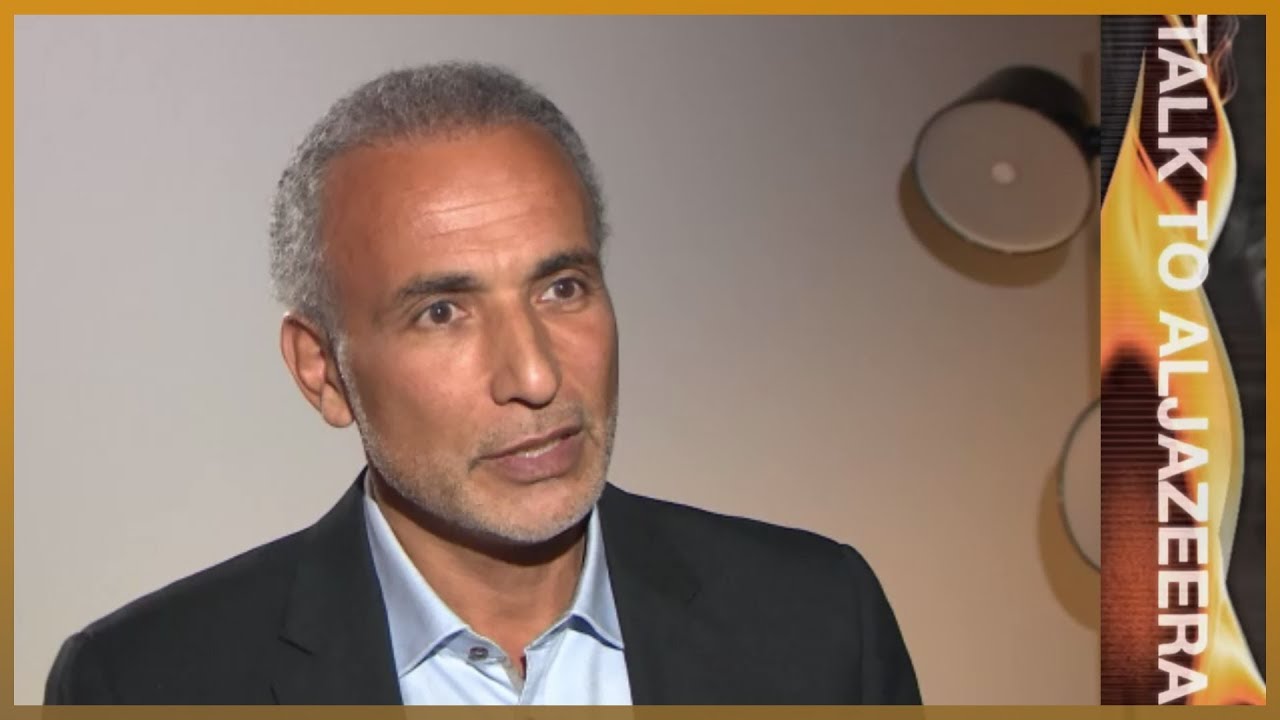

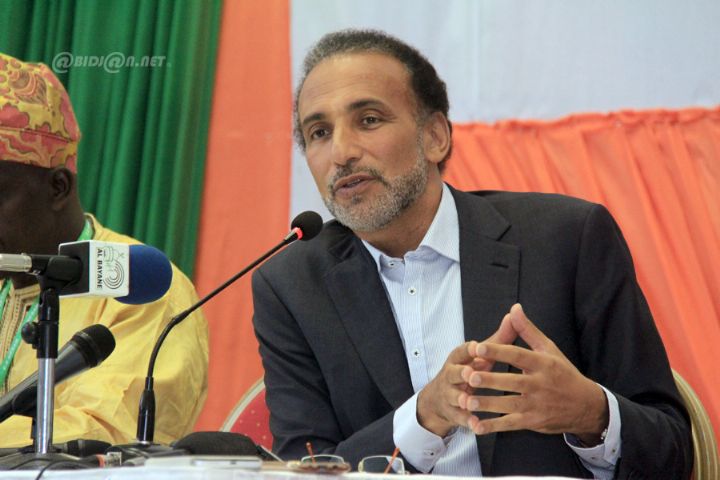
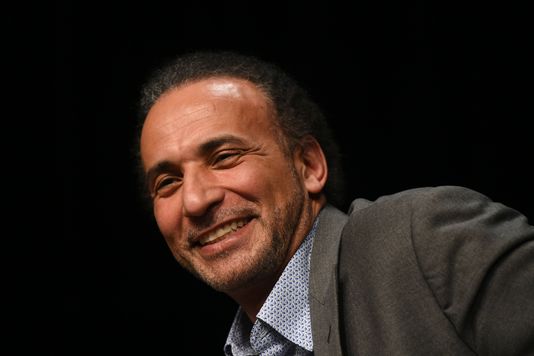
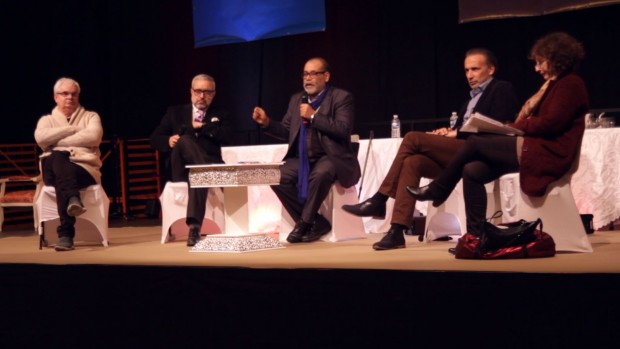
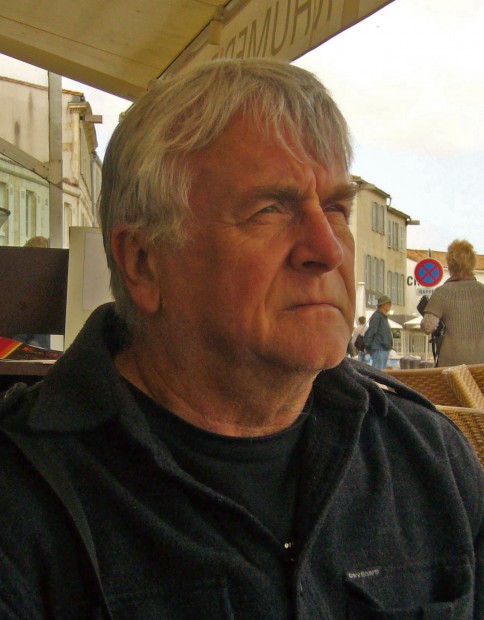



I used to have respect for Qaradawi, but I was finished with him when I read he thinks female circumcission is an accepted way to prevent extra-marital relationships. His morals seem to be right, but his methods not always.
I know my comment feels a bit « off-point », yet I can’t help but saying that I feel so bad England lost its game to Germany yesterday in the evening. I guess Mr. Ramadan was supporting England as well? If u did, sir, know that you’re not alone in your moarning.
God bless our gracious Queen !
Salamouhalaikoum,
génial mais je ne comprends pas l’anglais!!!!(humour)
On vous traite de « nazi » ou de « fascislamiste » mais l’on voit d’où viennent les attaques. Elles ont une filiation commune : votre critique d’Israël. N’ayez crainte la vérité finit toujours par payez qu’on vous traite d’islamiste violent, non violent ou que sais-je.
Salam.
La vérité à avaler…
http://blog.mondediplo.net/2010-06-24-Shalit-Hamouri-Bernard-Henri-Levy-et-les
…à méditer, les goûts et les couleurs n’ont aucune logique principale à leurs substances sauf peut-être quand il s’agit de correspondre seulement à leurs environnements,…
… l’Intellectualité sucrée, salée, se cristallise à certains éléments, que dire des goûts si différents à leurs similitudes colorées, disons un dialogue reconnu averti et correspondant aux utiles des besoins, comme il ne peut-être dissout à chacun les temps perdus sans savoir ni reconnaître à vue d’yeux…
…les pluriels du singulier sont souvent mieux intéressés que le singulier des pluriels, à qui voudra, sauriez vous pourquoi, et, des énigmes contenu de l’intérêt commun, quelques uns se diraient comment sauriez vous, vraiment…
… est-il de bon goût ou de bon sens à partager une vérité à imposer, les hommes se reprennent-ils d’aller une nouvelle fois vers tous ou se poursuivent-ils de faire une N-ième fois vers moindre, rappelons que le jour ou la nuit se font seulement différence de lumière et d’étoiles, pour si peu quelques sens authentiques et résumés y sont à chacun des vues, des mesures et du bon équilibre…
…hassan…salam, merci…
…en ordre d’apparence pensive et chronologique, à celui ci, l’ensemble des grandes ou fortes spiritualités se sont nées bien avant certaines réflexives incomparables et discriminantes, disons récentes audibles lisibles et bien peu forcément à ces dernières sur ce type de sujet, ou bien deux choses, se manque-t-il la volonté profonde et humaine d’un être sur tout et tous, ou, se cache-t-il les scènes ou les passages d’un incroyable objectif mais faux descriptif racial et armé, laissant à chacun les degrés d’une Histoire mal passée…
…ensuite, à bon intellectuel répondu, il se remarque à l’actuel certaines façons d’aborder les mémoires au versant de l’impossible, comme, quel principe se jugeait d’une conscience sélective d’être peu semblable avant elles, la mémoire spirituelle se serait-elle autant déportée…
…à partir de là et bien après, que se compare-t-il de meilleur à vouloir dire l’impossible d’une idée et ,de manière synchronisée, d’oublier les possibles en mémoires respectées, ou encore s’agit-il peut-être des absences d’un double présent significatif et particulier d’où certaines pensées acquises au conquis, et l’histoire promise se fut de croire en toute nation de leur nature, cela se dit-il plutôt compris ou de facto ceci se vaut-il sans mot dit, pour tout comme pour rien au monde, d’ailleurs, aussi, quelque part, certains temps disaient à quelle force est-il à même et toujours égale, certaines réponses s’y épargnaient des hommes à leurs mémoires, à leurs savoirs, à leurs histoires, au passé de l’objectif en question, humain est invariable à tous les temps, qui s’en souvient, a little…
…hassan…salam, merci
Intéressante analyse qui mériterait d’être traduite en Français, car elle clarifie les dynamiques en cours entreles différents courants de l’islam contemporain au nivau mondial (en Europe, on retrouve les clivages établis par l’auteur) et établit bien les enjeux : à diaboliser T.Ramadan,on favorise en fait la progression des salafistes.
Or leur influence est sensible parmi la jeunesse : ségrégation sexuelle, voile maxi- ie accompagné du djilbab- (mais c’est plus complexe que cela : il y a un besoin d’identification et un défi lancé aux parents, ainsi que la recherche d’une mode particulière et il y a « des voiles » bien plus q' »un voile »), refus de la musique, refus de l’engagement citoyen…
Tariq Ramadan devrait être l’allié naturel de tous ceux qui souhaitent une société démocratique et ouverte. Il ne s’agit pas de le soutenir inconditionnellement, mais il est clair qu’avec lui et ceux qui suivent son chemin, le débat est possible et permet de dessiner le chemin d’un vivre ensemble avec nos différences, lesquelles ne sont pas figées pour l’éternité. Les salafistes sont totalement imperméables à une telle perspective.
En tout cas, ce texte me semble important.
F
I really like your blog and appreciate your work.Keep it up.Thanks for sharing such a useful information. Buy Essay Help | Coursework Help | Buy Research Paper
Really great post nice work i love your work and its really helped me in my research.Thanks for sharing:)
Dissertation Help UK
i love your work and its really helped me in my research too Artesanos
Well worth to read this article, thanks for sharing this information. With this article you offered me got a chance to know about this, anyway i say Great Article!
Msc Dissertation
Hello, i think that i noticed you visited my website thus i came to go back the choose?
.I am attempting to to find issues to enhance my site!I guess
its adequate to use a few of your ideas!!